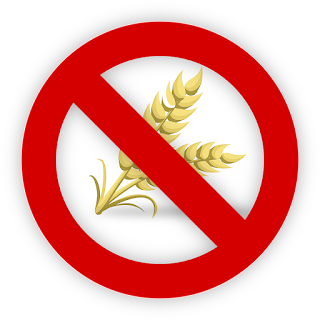Food Allergy
An allergy can be defined as an intolerance to a particular substance when touched, inhaled, injected or ingested. A food allergy is not the same as food poisoning. Foods that are consumed by most of us can cause severe allergic reactions in some people who are allergic to that food. Foods that cause allergic reactions tend to be high in protein.
It occurs when the body's immune system overreacts to normally harmless substances. By allergy the immune system reacts against a substance that it is not supposed to react to. The immune system gets confused and the immune system incorrectly strikes/attack a food protein.
Simple headaches are usually symptoms of an allergic reaction to chocolates and wheat. Migraines, on the other hand, are typically caused by an allergy to cheese, nuts, citrus fruits, tomatoes, milk, eggs, and MSG(Monosodium glutamate). (Monosodium glutamate, sodium salt of glutamic acid, is a chemical used for seasonings in a lot of foods but only those which have excessive amounts can cause allergic reaction).
The symptoms of Food allergy can be itchy skin, hives, rashes, constipation, Trouble sleeping, Heartburn, diarrhoea, and swelling around the mouth and throat. These types of symptoms can start rather quickly after eating a certain type of food. Some people may even experience nasal symptoms that include runny nose or congestion However, These may not be related to the food.
The most common allergenic foods for children are dairy products, wheat, corn, sugar, soy, nuts, peanuts, nuts and eggs. Similarly, Many adults are also affected by oats, yeast, chocolate, seafood, beef and citrus.
Food allergies not only harm our bodies and our minds, they also prevent us from deriving the full nutritional benefits from the healthful foods we do eat which can lead to nutrient deficiencies and malnutrition. Also, Food allergies can restrict your ability to eat the foods you need. A diverse diet offers maximum assurance that you are getting the nutrients you need.
Any type of food can trigger an Food allergy. Yet, the "Big 8" account for more than 90% of all cases- milk, eggs, peanuts, tree nuts, fish, shellfish, soy, and wheat.
Types of Food Allergies
If you are allergic to a food, you can experience either an immediate or a delayed reaction to food. The immediate reaction pattern is referred to as Type l food allergy. Immediately or within a short time after eating the food, you show clear and often dramatic symptoms. If you are allergic to fungus, you might develop abdominal cramps within an hour of eating a ragout containing mushrooms. A child with a type 1 reaction to kiwi fruit might experience severe itching in the mouth or vomiting within 15 minutes of eating a kiwi fruit.
The most dangerous Type l reaction is called anaphylaxis - a severe reaction that can be fatal within minutes. If you or your child experiences light-headacheness, swollen tongue or throat, difficulty breathing, fainting or facial swelling immediately after eating food, seek immediate emergency care.
Type l food allergies are easy to diagnose. They respond to allergy skin tests, and show up on blood tests because they result in an excess of IgE antibodies. For many doctors, this is the only kind of real food allergy.
Type ll food allergy does not involve IgE antibodies. Instead, IgA, IgG and IgM antibodies may be produced. This reaction pattern is associated with the release of inflammatory substances by the immune system. Many food allergies are of this type, therefore, they are not detected by standard allergy tests, which usually only test for the IgE antibodies.
The most common treatment for food allergies is avoidance. This will relieve the symptoms and prevent further damage. However, it can mean a lifetime of restrictive diets!
























3 Comments
Nice info, I am very thankful to you for sharing this important knowledge. This information is helpful for everyone. Read more info about Skin Testing Clinic In Westford Ma. So please always share this kind of information. Thanks.
ReplyDeleteYou wrote this post very carefully about antimicrobial wash for produce. The amount of information is stunning and also a gainful article for us. Keep sharing this kind of article, Thank you.
ReplyDeleteThanks for sharing this very good info with us, I have seen very bad allergy and tried all but later i have taken naturopathy treatment in Pune and i got rid off it.
ReplyDeleteIf you have any doubts , please let me know